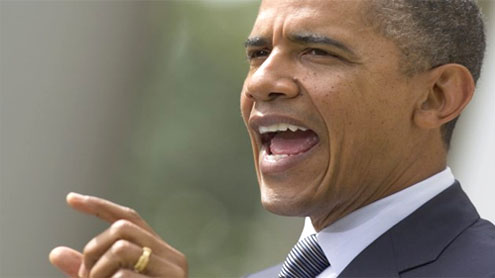
MANY of the senators voting ‘no’ on President Barack Obama’s proposal to attack Syria had already spoken by the time Marco Rubio, the Republican senator from Florida, had the opportunity to speak and register his vote.
One of the youngest senators, and touted as a contender for the Republican Party presidential ticket in 2016, Rubio has been pressing for deeper American involvement in Syria for the past two years. However, as the killings continued in Syria, as 2011 stretched into 2013, his voice had not been heard by the Obama administration.It was a surprise, therefore, when Senator Rubio voted against the authorisation of military force against Syria, in contrast to the ‘yes’ vote given by most members of the Senate Foreign Relations Committee.
In his short address, Rubio said that he had never supported military action in Syria because he did not think it would work. “The only thing that will work,” he clarified, “is if the Syrian people remove him [President Bashar al-Assad] from power.”Both Rubio’s words and his vote are important to note. Even though Rubio adamantly fought off allegations of being an isolationist, he, along with another senator, Rand Paul, elected from Kentucky, are both seen as leaders of an increasingly popular libertarian bent in the Republican Party.
Senators Paul and Rubio were both elected to the Senate last November with double-digit margins over their opponents. True to their libertarian leanings, both have roundly criticised what they see as the cavalier and unfettered federal spending of the Obama administration.Soon after being elected, Senator Paul proposed his own plan of cutbacks to balance the federal budget. Both senators voted against the budget deal struck by the Obama administration with Republican elected officials.
After the Senate vote on Syria last week, both are also now opponents of the president’s request to intervene in Syria.In the words of commentators, their position was understandable given their future ambitions; supporting military action in Syria now would be a contaminant to any Republican harbouring presidential hopes for 2016.To remember a time when things were different in the Republican Party one need not look too far back. Indeed, in the martial, war-happy era of George W. Bush, it was voting against war that was a political liability and could mean the end of political careers.
In that Republican Party, dominated by evangelical Christians and neo-conservatives, a hesitation to bomb was equal to a deficient patriotism, a lack of strength pointing in turn to un-electability. The cadences of nation-building and invasion echoed in every song, and swollen defence budgets financed all the adventures abroad.Needless to say, the Republican Party of Paul and Rubio where even the latter, who termed Syria a “security threat not simply to its own neighbours in the region, but to the United States itself,” votes against war, is a different political organism. – Dawn
The libertarian proclivities of the two are less concerned with social issues that dominated stump speeches of old. Their central arguments rest on reducing the size of government and eliminating entitlement programmes like Social Security and Medicare, both of which they see as drains on the exchequer.Their first target is what they see as a bloated federal government, whose instances of overreach span from the illegal spying of the National Security Administration on its citizens to President Obama’s healthcare plan requiring every American to carry health insurance.The vote on Syria was the first time that the two senators, the darlings of small government supporters, faced the question of going to war in an immediate sense. Senator Paul’s opposition to President Obama’s decision was already well known. Senator Rubio’s was more of a surprise.
In either case, the aversion to war by the strand of the Republican Party that was most popular at the polls signifies changing times for American foreign policy.In the run-up to the vote in the US Congress, Republican House members reported being swamped with calls from constituents at an unprecedented rate, all asking them to vote against authorising the use of force against Syria.While some pro-war Republicans like Senators John McCain and Lindsey Graham support the intervention, the reticence of the emerging players to support President Obama’s cause is telling of things to come.
An America with the new leaders of the Republican Party in charge would likely be a more isolationist America, extremely sceptical of intervention, and unwilling to invest in building other nations.Given that an average of the poll numbers over the past week have all shown that well over half of the American public is against intervention in Syria, that America may not take too much time to arrive.In a substantive and immediate sense, then, the question of whether President Obama wins the congressional vote on the authorisation of force over Syria tells not so much where the US stands today, but where it will stand tomorrow.
If there is intervention in Syria, the detailed parameters of limitations added to legislation, the explicit forbidding of boots on the ground, the 90-day time limit, all point to the hesitation of even those among the Republicans and Democrats who voted in favour of authorisation.As Senator Rubio explained his ‘no’ vote on Syria, he tried hard to distinguish himself against the overtly isolationist Paul, saying, “There is a movement afoot in both parties to disengage the United States from issues throughout the world,” and doing so would be costly for the US and wrong.His attempt to emphasise the difference is noble, but nuance has, sadly, little place in politics or policy. In the end, the reasons why the emerging America will turn away from the world are not as important as the fact that it will indeed, turn away.












